14. Elevator to the Gallows – Miles Davis
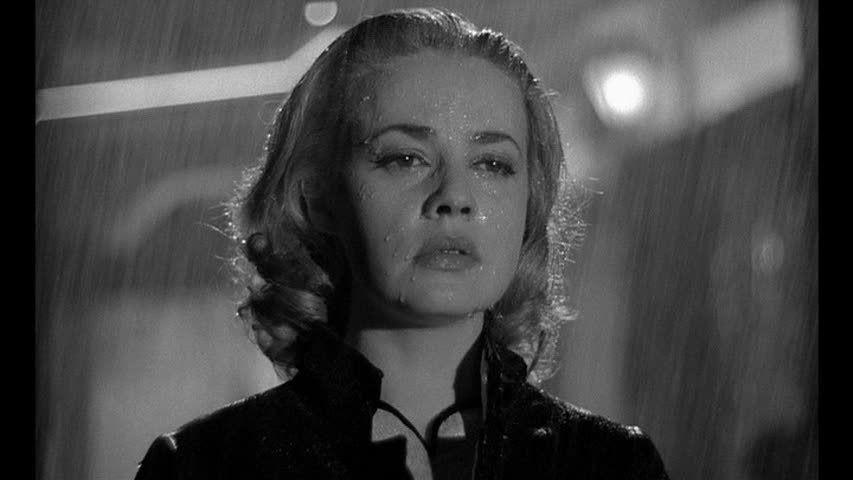
This was one of the first soundtracks composed by a jazzman that had no previous experience on the movie scores field. Elevator to the Gallows is a masterpiece of Nouvelle Vague, the New Wave of French Cinema, and Louis Malle wanted to experiment with a new approach to soundtrack when he hired Miles Davis, taking advantage of the fact that the trumpet player was doing a tour in Paris.
The Soundtrack is completely diverse from any form of soundtrack previously released, even jazz influenced scores such as Alex North’s A Streetcar named Desire (1951) or Elmer Bernstein’s The Man with the Golden Arm (1955). In 1958, Miles was on the verge of revolutionizing jazz with his Kind of Blue (1959) album. He had been studying modal scales for many years and his music was developing a new sound, completely different from the hard bop he was associated before.
Elevator to the Gallows is a no leitmotif soundtrack; it contains series of musical pieces that apparently have no beginning or end, just like Miles’ best efforts such as Kind of Blue, Bitches Brew and On the Corner. The music is perfect for the mood of the film: introverted, urban, tense, sad and above all things, lonely.
This soundtrack is a landmark both for Cinema and music. After it many jazzmen were hired to produced movie scores (Duke Ellington, Charles Mingus, Sonny Rollins and Herbie Hancock, to quote a few) and a whole new specter of possibilities opened for the association between images and sound.
13. The Thomas Crown Affair – Michel Legrand
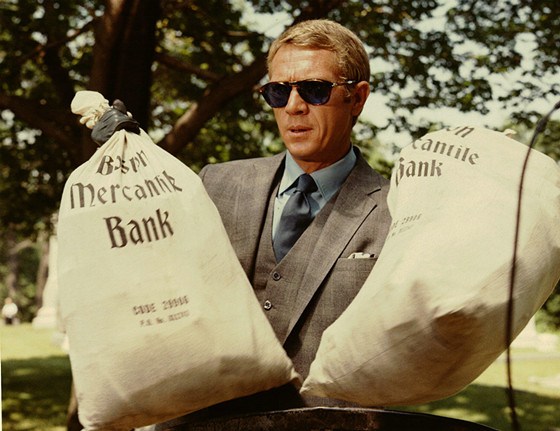
Maybe the most famous thing about this soundtrack is the theme song called “The Windmills of your mind”. But it’s certainly not the most revolutionary thing about this soundtrack.
When Norman Jewinson and Hal Ashby finished the recording of the scenes they had 5 hour of images. That was a big problem: the movie was supposed to be much shorter than that. So Michel Legrand had an idea: “Why don’t you go on vacation and give me 6 weeks to compose the soundtrack? Then you can edit the movie based on the music”
Although the movie producer thought it was a crazy idea, Ashby and Jewinson agreed. Legrand composed one hour and a half of music and so the movie was edited follow the rhythm, pace and depth of the music. Scenes such as the chess game between Steve McQueen and Faye Dunaway were supposed to be only 30 seconds but after the music composed by Legrand it became 7 minute long scene.
12. Touch of Evil – Henry Mancini
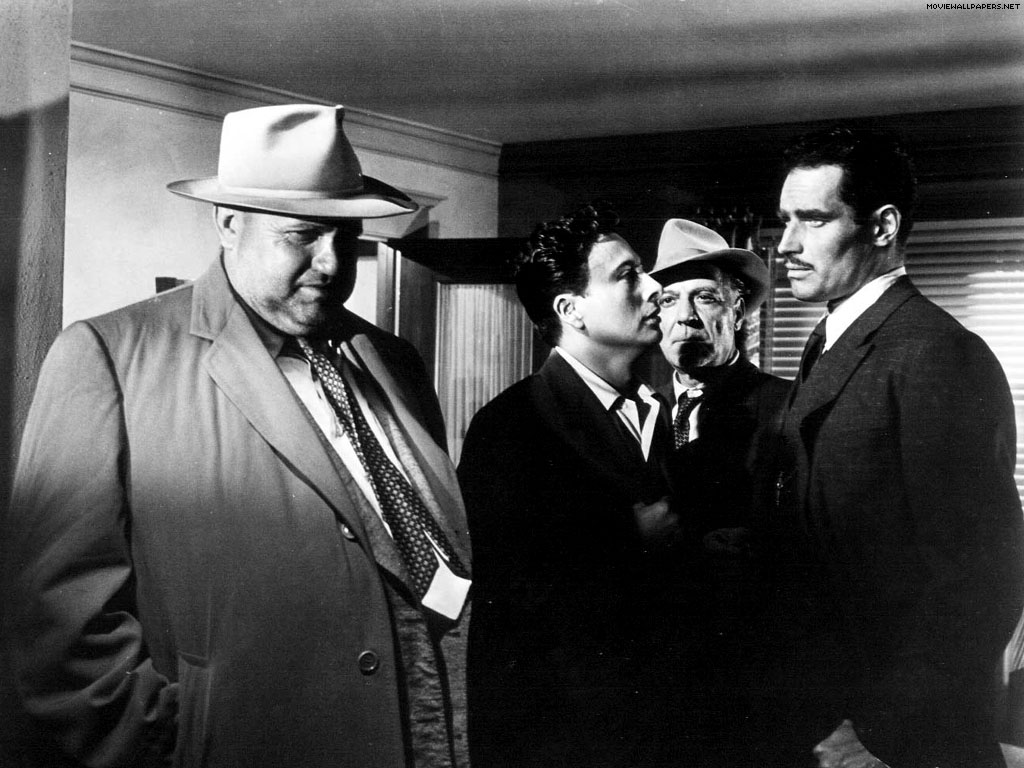
Touch of Evil is regarded as the last Noir movie from the classic Noir era. It’s also the last Orson Welles movie produced by a big company in the US. For the soundtrack Welles hired a young composer: Henry Mancini. The legendary director sent a letter to Mancini requiring only source music for the movie: boleros, Afro Cuban rhythms, Mexican music, jazz, rock n’ roll and cabaret music… and that was what Mancini composed: discrete music, only a support for the movie.
In the words of François Truffaut: “In lots of big Hollywood movies you can hear a grandiose score that agitates and fly, hovering over static images. In Touch of Evil it’s the opposite: Welles’ images sing and fly, while Henry Mancini’s music stays, fortunately, with both feet on the ground”. This approach combined perfectly with Welles’ filming style and served as a pioneer for the Easy Listening and Muzak genres of the 60’s.
11. The Day The Earth Stood Still – Bernard Hermann
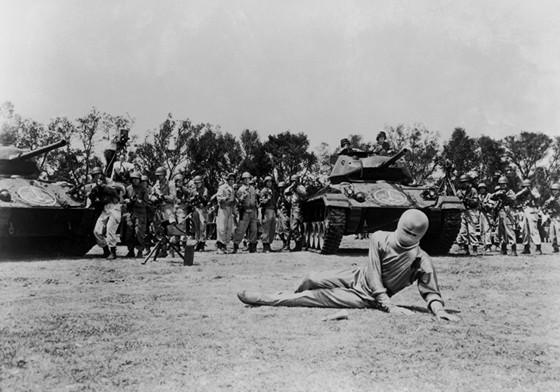
When François Truffaut hired Bernard Herrmann to compose the score for Fahrenheit 451 he said that the composer was the only one capable of producing 21st Century music. Probably the French director was referring to Hermann’s score from the sci-fi classic The Day the earth stood still (1951).
By that time Hermann hadn’t started his famous partnership with Alfred Hitchcock, but he was already an established composer with works composer for Orson Welles, Joseph Mankiewicz and Nicholas Ray. Herrmann composed a soundtrack that mixed his trademark (tense arrangements) and a futuristic sound (two Theremins), creating the blueprint of Sci-Fi sound.
10. Shaft- Isaac Hayes
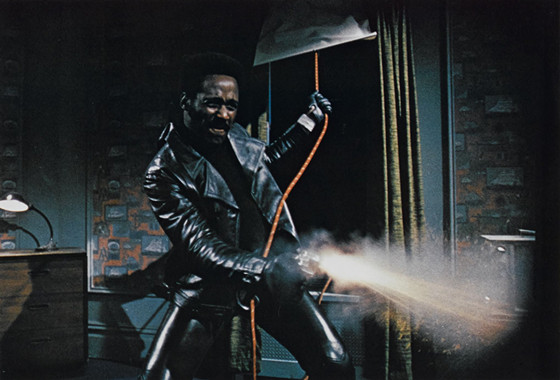
This blaxpoitation soundtrack is one of the first efforts of a popular music artist to create an original score. Isaac Hayes was an acclaimed singer, composer and producer from the legendary Stax Records. He is the father of the “symphonic soul”, a blend made of grooves and orchestral arrangements.
In “Shaft”, there are plenty of both. “Soulville” is a beautiful soul ballad with female choirs; “No name Bar” is a tight funk with amazing brass arrangements; “Do your Thing” is a 19 minute long epic psychedelic groove; and finally the main theme “Shaft” is an absolute classic, the perfect mix of wah wah and orchestration. This soundtrack gave Isaac Hayes an Oscar and most importantly, opened the door for popular artists such as Curtis Mayfield and Marvin Gaye to compose movie scores.
9. The Pawnbroker – Quincy Jones
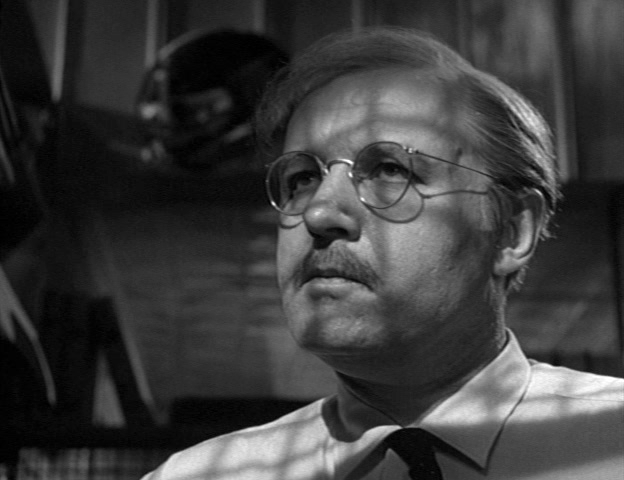
Quincy Jones was the first afro American to enter the “Caucasian” world of soundtrack compositors and his first work was The Pawnbroker (1964) directed by Sidney Lumet. Quincy Jones was originally a trumpet player for many jazz bands, but since his early years he manifested a desire to work as a serious composer with incidental music.
The pawnbroker reflects a composer whose eclecticism is refreshing: jazz, classic, afro rhythms, Latin music, and mood music. The highlights include “Rack ’em up”, a sort of fast tempo dissonant jazz driven by angst and violence.
8. Alien – Jerry Goldsmith
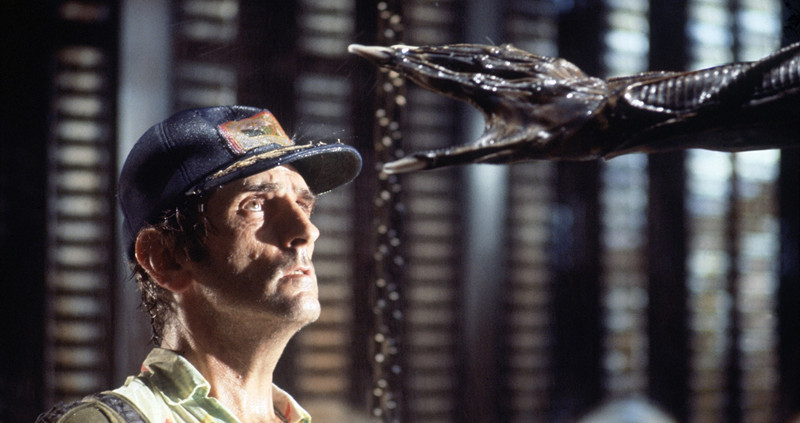
Ridley Scott cut lots of parts from the original soundtrack by Jerry Goldsmith. He also added music composed by Goldsmith for a previous film Freud (1965). Despite all that, Alien score still a fabulous work of innovation done by Jerry Goldsmith. He uses singular instruments such as the didgeridoo, serpent, shawn and log drums.
These exotic instruments were used in order to give an alien atmosphere, an unearthly feeling of imminent danger. He also equalized the instruments in a very particular way, trying to disguise them in order to make it even more mysterious. The result is one of the most eerie, unearthly and spooky scores of all time. Besides the movie itself, there is a complete version of the soundtrack released in 2007 that’s worth the listen.